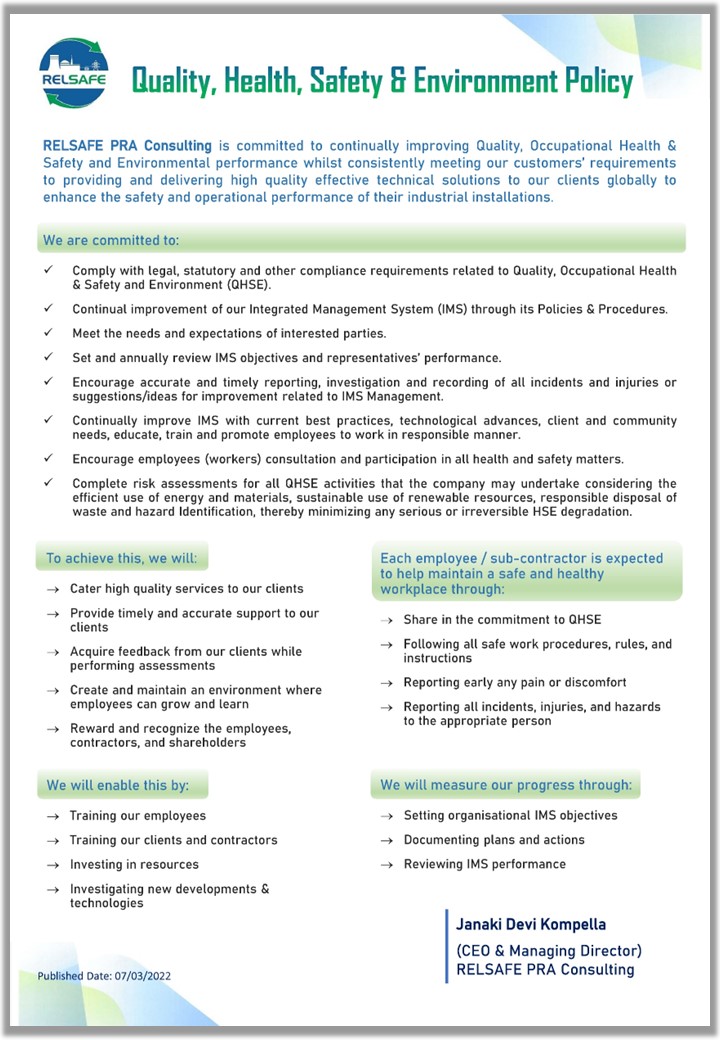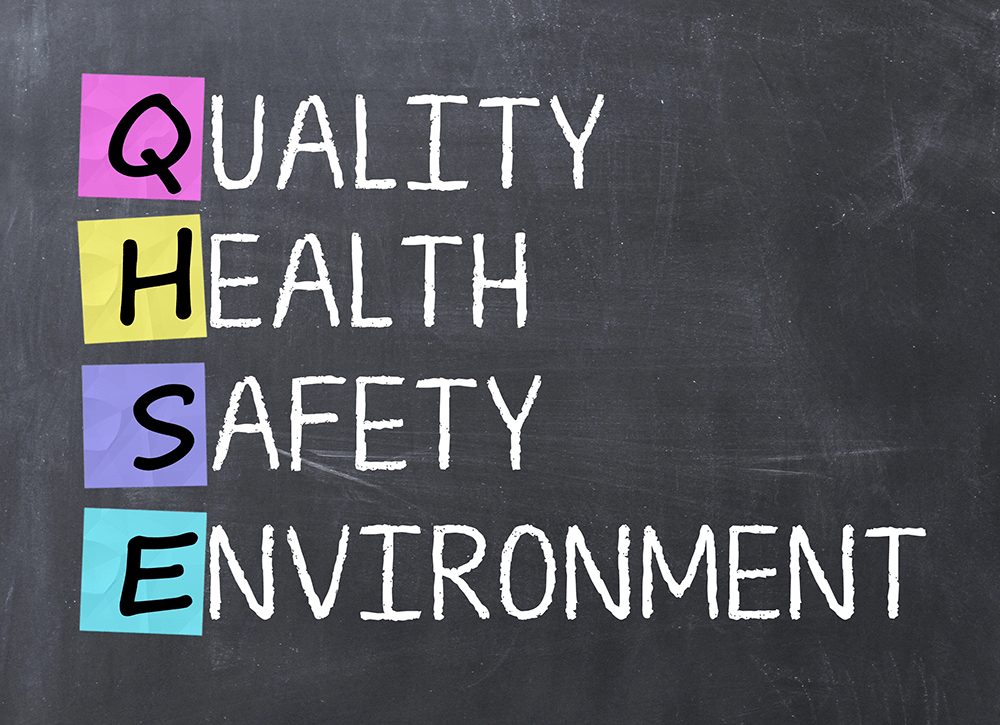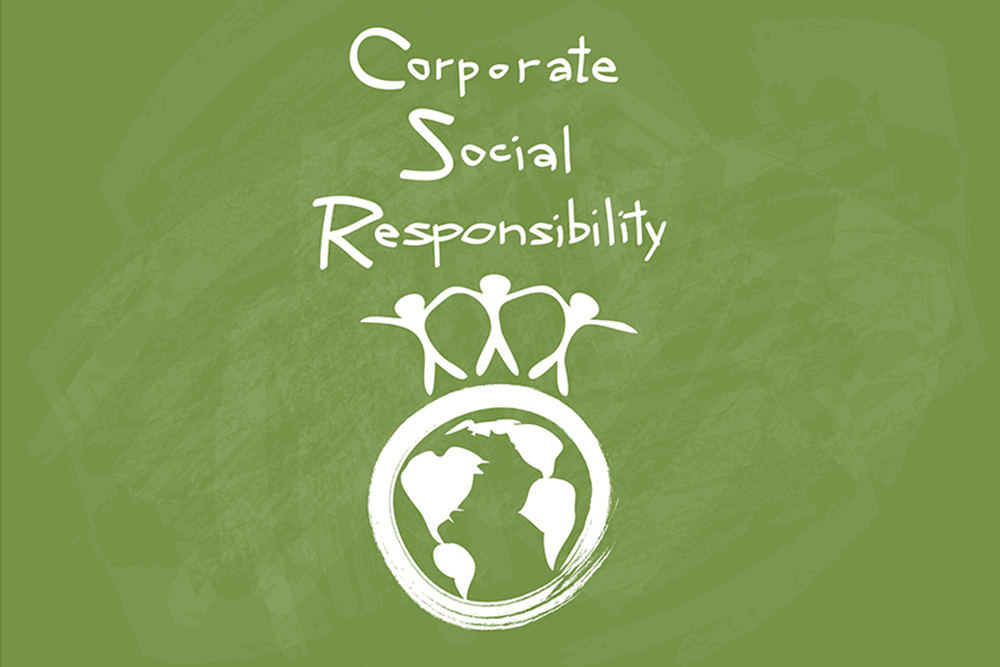Quality, Health, Safety & Environment Policy
Quality
RELSAFE is committed to providing high quality effective technical solutions to clients globally to enhance the safety and operational performance of their industrial installations.
Health & Safety
RELSAFE is committed to maintaining a safe and healthy working environment for everyone using the premises as a place of work or visiting on business.
Environment
RELSAFE recognizes environmental management as a major corporate priority and has established policies, programs, and practices to alleviate risk to the environment and to conduct business activities in an environmentally viable way possible.
Our detailed QHSE policy can be found here.



Anti-Bribery and Corruption Policy
RELSAFE takes a zero-tolerance approach to Bribery and Corruption and is committed to acting professionally, fairly and with integrity, to conduct all its businesses in an honest and ethical manner. RELSAFE is committed to upholding the relevant laws and implementing and enforcing effective systems to counter bribery and corruption in all the jurisdictions in which it operates.
Anti-Sexual Harassment Policy
RELSAFE is committed to provide equal opportunity and a harassment free workplace notwithstanding race, caste, religion, marital status, gender, sexual orientation, age etc. RELSAFE’s Anti-Sexual Harassment Policy is formulated to prevent sexual harassment of women as per The Sexual Harassment of Women at Workplace (Prevention, Prohibition and Redressal) Act, 2013 & Sexual Harassment of Women at Workplace (Prevention, Prohibition and Redressal) Rules, 2013.


Corporate Social Responsibility Policy
RELSAFE is committed to ensuring that our activities extend beyond business and include initiatives for the benefit and development of the community and society. As a socially responsible organisation, a portion of our profits is spent on initiatives focussed towards social causes such as education, poverty alleviation, hunger eradication, women empowerment, promotion of gender equality, empowerment of socially and economically backward groups, environmental protection, water conservation, rural development etc. These activities are carried out directly or in collabrations with trusts and non-governmental organizations or through contributions to funds notified by the Government.
